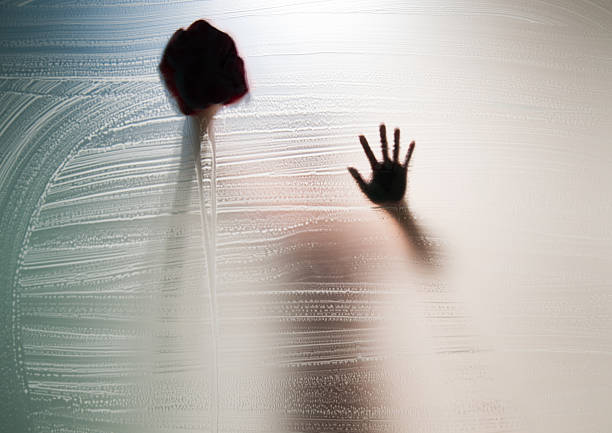The relationship between a caregiver and a disabled person can be confusing for one, the other, or both. It takes practice, and patience. As a disabled person who cannot even put on my own shoes without assistance, I am completely dependent on caregivers to get through my day. This can be difficult psychologically, because as adults we strive to establish our independence, and dependency can be a regressive experience, like reverting to a kind of childhood (where without our parents we would not have survived). The key, for me anyway, has always been to separate the tasks a caregiver helps me perform from my identity as a man; so, “getting dressed,” or how I get dressed, does not define me – in this case, clothes do not make the man.
One of the things they don’t tell you about when you are hit with disability at mid-life is all the psycho-social changes you will experience. The ART (acute rehabilitative therapy) unit at Cedars-Sinai Medical Center in West Hollywood introduced me to and helped me develop strategies for overcoming my new physical challenges, but neither they, nor anyone else, prepared me for the interpersonal ones. Dependency (on others) can feel like inferiority, and I’ve seen many a disabled person lash out (to varying degrees) to overcome feelings they are “less than.” I prefer to see caregivers, whether that’s their professional job and role or they are just family/friends helping me do something I can’t do for myself, as teammates, an idea I first got from the Smart Ass Criple, a wheelchair-bound writer and disability rights advocate named Mike Ervin living in Chicago; he calls the caregivers that help him get through the day his “pit crew,” a paradigm borrowed from the world of race car driving. Race car driving is something I know little about, but I do know the driver goes out and drives on the track while his crew is there, at the ready, should he pull off said track for maintenance (new tires, fix a faulty distributor cap, top off the beverage in his cup holder, etc.). Together, they are a team.
A number of years ago, the assisted living facility where I lived hired a very handsome young man to be a caregiver. To say he got my engine running would be an understatement – a sentient AI bot could not have designed someone more attractive to me in every way. Wow! Just wow. I think some people see the disabled as “sexless,” meaning they couldn’t possibly be experiencing desire like their able-bodied counterparts. But I am here to tell you nothing could be further from the truth. It’s not like I’m blind: I could see this young man was cute – that adjective does not do him justice; this young man was an Adonis, you might even say he was “hot” to use an idiomatic expression.
Now one of the things caregivers do is help me bathe. This involves getting me undressed to the point that I am completely naked. Prior to becoming disabled, if I was naked with someone and/or they helped me undress it meant we were about to have sexytime. So you can see my dilemma, yes… this guy already has my motor firing on all cylinders, and now he’s undressing me? The male anatomy comes with an indicator of arousal that is about as subtle as a klaxon announcing a fire. And my brain doesn’t always remember I’m disabled, so it defaults to the life I led prior to disability, which I must confess was not one to edify the Church Lady. To its way of thinking, getting naked with a hot guy means, well you know, so let’s activate the “I’m up for it” indicator!
When a new caregiver is hired they pair him with a seasoned one while he learns the ropes, so one afternoon Adonis comes in to my apartment with another handsome young caregiver (maybe an 8 to hot guy’s 10) who had worked there, and with me, for a while. He says, “it’s time for your shower Matt.” Gulp. This is going to be awkward.
So into the bathroom we go where they undress me (yes, both of them!), pick my naked body up out of the wheelchair, and place me gently on a shower chair, my senses reeling from all the skin-on-skin contact. I want to be clear – they are doing their job, and there is nothing inappropriate about this: I have to bathe, and disability means I can’t do it myself, so they are there to help. I should also note that Adonis is straight, married (to a woman of all things), and has a two-year-old son. To him, and his trainer, this is just another day at the office.
Bathing and grooming in assisted living take on many forms depending on the level of disability of the resident. Some need a complete “hands on” approach, called a total assist, where the caregiver literally lathers them up and rinses them off, or runs the razor across their beard. I, on the other hand, can soap myself up with a loofa and then wash with a hand-held shower wand; I can, and do, shave my own beard. In my case, the caregiver performs what is called a “standby assist,” where their role is to undress me, get me in and back out of the shower, dress me, and be nearby should I require assistance.
Adonis and his trainer have placed my naked body on the shower chair. Naturally, my body responded physiologically to all the manhandling that resulted in my being in that position. Think of a flagpole.
The trainer says to Adonis, “Matt is a standby assist, he does himself.”
Okay, those of you who know me know not to leave me with an opening like that! So my response won’t surprise you. The rest of you may want to have smelling salts nearby. I said,

“that’s true, but if you want to grab hold and have a tug, I wouldn’t object to you giving me a hand.”
